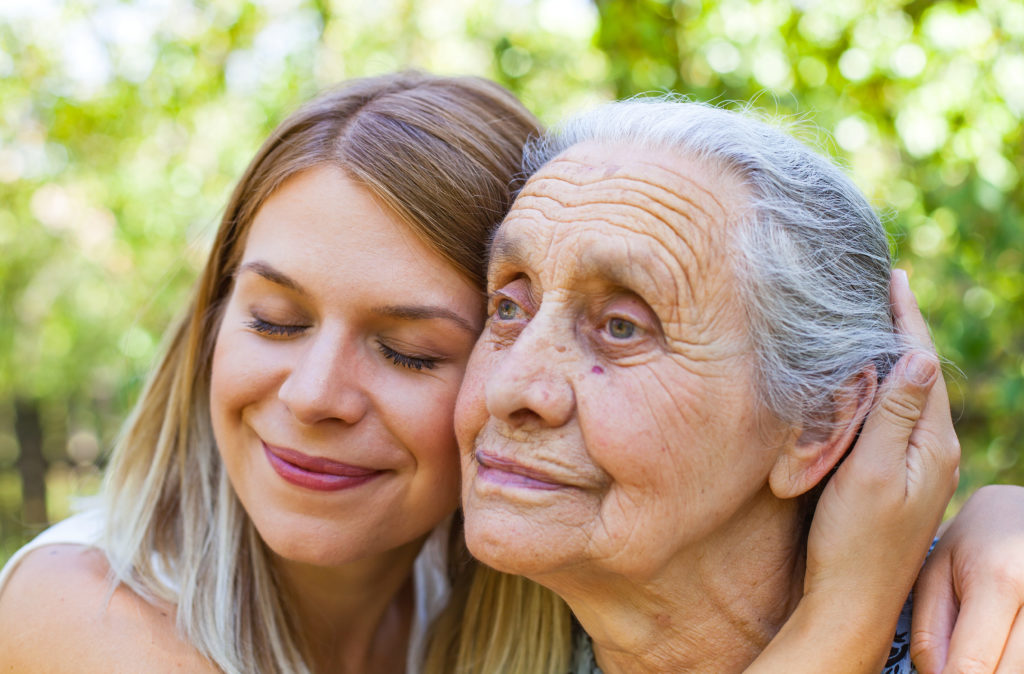August 11, 2023

Most people associate grief with physical death. But a loved one developing dementia or Alzheimer’s evokes a similar sense of loss. As journalist and political commentator Candy Crowley so poignantly observed, “I want to tell you how much I miss my mother. Bits of her are still there. I miss her most when I’m sitting across from her.”
The bereavement associated with Alzheimer’s is not limited to family, friends and caregivers; it also affects those with the disease, especially in its early stages.
“It occurred to me at one point that it was like I had two diseases – one was Alzheimer’s, and the other was knowing I had Alzheimer’s,” said the late author and humorist Terry Pratchett.
But the news is not all bad. While there is currently no cure for Alzheimer’s or way to slow its progress, there are some very promising care models. Equally good news is that there are even more ways to help everyone dealing with the social and emotional toll that dementia takes.
When Someone You Love Has Dementia…
Recognize, accept and share your feelings
Sadness, anger, love, sympathy, guilt, frustration…they’re all feelings commonly experienced by those close to someone with significant cognitive decline – sometimes all at once. Allowing oneself to feel and accept each emotion, however conflicting, is essential. Expressing them in a journal or with a trusted friend, support group or counselor is both helpful and healthful.
Expect continuous feelings of loss
Unlike physical death, progressive illness presents new heartbreak as a senior parent or loved one’s condition worsens. This is normal, and it is important to anticipate and acknowledge these changing levels of grief.
Accept your limitations and claim your own pace
Each person grieves in their own way, at their own pace. Several factors come into play, including the degree and length of illness, the relationship with the afflicted person, individual experiences with loss, and more. Coping with progressive illness is a personal process to which no “rules,” apologies or expectations apply.
Join a support group
“Coming out of the shadows” – sharing, crying, laughing, empathizing with others in similar situations – is immensely freeing and cathartic. While some may believe “I can do it on my own,” a support group offers a safe space to share without the expense and formality of professional therapy. (Those feeling dangerously depressed or overwhelmed are advised to seek psychological or psychiatric help.) Support groups are readily available; here’s a good place to look for one in your area.
Practice self-care
People caring for or close to someone with dementia or Alzheimer’s are often over-taxed, with little time to focus on their own well-being. This is not good for either patient or caregiver. Tending to one’s own physical, mental and emotional health, doing things that bring comfort and joy, is not selfish – it’s self-preserving and essential.
Leave room for humor
Filmmakers of a new movie about a couple dealing with Alzheimer’s, “The Artist’s Wife,” share that one advisor close to the disease recommended embracing a sense of humor. “You have to try and have a sense of humor, or the disease will be too sad to bear…there is a certain absurdity to the situations you face, and you have to find the light in the darkness and the humor in the tragedy,” she said.
Mindful, Person-Centered Care
Recent studies have shown that approaching Alzheimer’s care with mindfulness is beneficial to patients, their caregivers and loved ones. Furthermore, mindfulness in this context is focusing on the present moment, the here and now, without preoccupation about the future or wishing things were different.
Practicing mindfulness aids communication with those who have impaired memory/cognition. Because the emphasis is on present interactions, behaviors substitute for complex communication skills that may have diminished. Research suggests that mindfulness lowers depression and anxiety, improves sleep, and heightens positive emotions for all parties.
Mindfulness also stresses a focus on a person’s abilities as opposed to their deficiencies – what they can do, not what they can’t do.
Along with mindfulness goes person-centered care. This approach rejects traditional medical models focused on staff-directed schedules and processes in favor of care built around the needs of the individual and the recognition that he/she is a whole person, encompassing much more than cognitive abilities. Respect, choice, dignity, self-determination, and purposeful living are major tenets of the holistic, person-centered model.
Trained Memory Care at Barclay Friends
Barclay Friends communities, including our new Preston construction, embrace both mindfulness and person-centered care. Named for 18th century Quaker botanist John Bartram, our “Bartram Way” emphasizes warmth and creativity and a secure feeling of home free of sterile, stringent procedures and processes.
All of our staff members, including administrators, are trained in the Alzheimer’s Association’s essentiALZ™ program, comprised of the basics of dementia, person-centered care, and behaviors as expressions of communication. For family members and caregivers, Barclay Friends offers education, resources and support along the emotional journey of dementia and Alzheimer’s.
Looking for Memory Care?
Preston is open and accepting applications. Find out how our trained staff in Memory Care can celebrate the whole, wonderful person your loved one is.